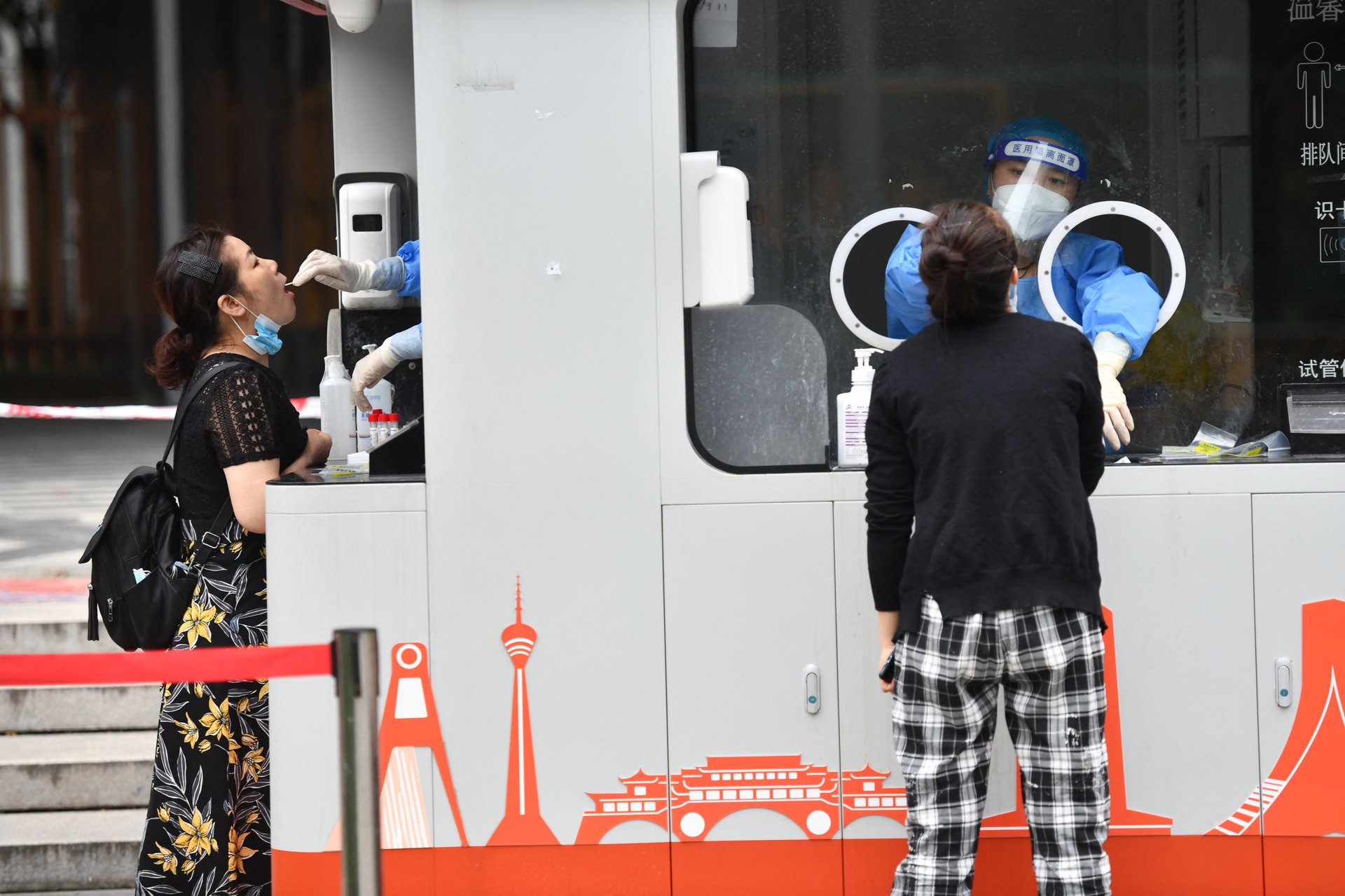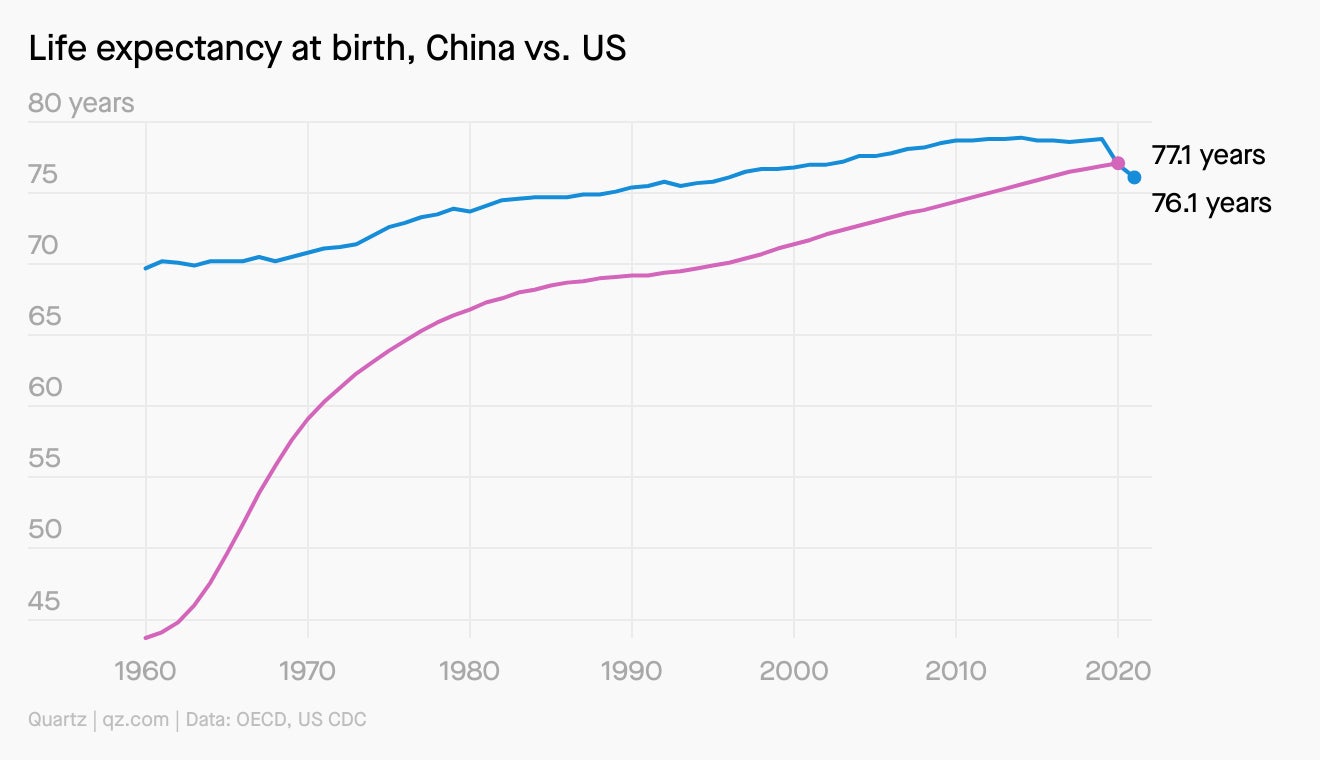🌍 Chengdu in lockdown
Plus: A cotton crisis is looming

Good morning, Quartz readers!
Here’s what you need to know
China placed Chengdu under covid lockdown. Following an outbreak, the 21 million residents of Sichuan province’s capital have been ordered to stay at home.
The US placed restrictions on Nvidia chip exports to China. Regulators have banned the sale of two top AI chips in a move that could prove damaging to Chinese tech firms.
The International Monetary Fund preliminarily agreed on a $2.9 billion loan to Sri Lanka. The crisis-hit country committed to debt restructuring and increased financial transparency. Meanwhile, Zambia gained approval for an IMF loan worth $1.3 billion.
A Russian oil executive died after falling from a hospital window. The circumstances surrounding the death of Lukoil chairman Ravil Maganov remain unclear.
Microsoft and Activision Blizzard were given five days to appease UK regulators. Microsoft’s $68.7 billion takeover of the video game giant is under scrutiny across the world.
UN inspectors reached Ukraine’s Zaporizhzhia nuclear power plant. The delegation will make a safety assessment of Europe’s largest nuclear plant which sits in an active war zone.
Poland demanded $1.3 trillion from Germany in World War II reparations. Its leading Law and Justice party has made multiple requests for payment since 2015.
Adani Enterprises was added to India’s Nifty 50 Index. Billionaire Gautam Adani’s conglomerate will officially enter the country’s most tracked stock index on Sept. 30.
What to watch for
At a whopping $465 million, Lord of the Rings: The Rings of Power has the biggest budget for any show that Amazon Studios has ever produced. And that figure doesn’t even include the $250 million Amazon paid to secure the television rights to the franchise from the Tolkien estate, which brings the total to $715 million.
With at least five more seasons planned, that would push Rings of Power far past the billion-dollar mark as soon as season two, which has already been approved for production.

Initial reactions from fans who attended special screenings of the first episodes skewed positive, but the real test will be how the series is received by the 175 million Amazon Prime Video viewers at home. The next 48 hours will determine whether or not Amazon’s biggest bet on original programming ever has succeeded, and could make or break any plans to engage in similarly large productions in the future.
China is surpassing the US in life expectancy
US life expectancy has hit its lowest point since 1996. Provisional data from the US Centers for Disease Control and Prevention (CDC) shows that from 2020 to 2021, the nation’s life expectancy dropped from 77 to 76.1 years (pdf). Covid is the main factor behind the shortened life expectancy, accounting for 50% of the decline.
Meanwhile, China’s life expectancy is 77.1 years—now a full year longer than Americans, according to 2020 numbers (2021 data is not yet available). Beijing’s stringent zero-covid strategy will likely be reflected in a lower mortality rate as it continues to avert an estimated 1.5 million deaths.

A cotton crisis is looming
Nearly half of Pakistan’s cotton crop—which represents 3% of the world’s cotton supply—has been damaged by catastrophic flooding this week.
But cotton’s rough year goes beyond the recent floods. Other severe climate events and political tensions have disrupted cotton output in the world’s top five producing countries. Quartz reporter Tiffany Ap explains why that spells trouble for downstream businesses globally, including apparel, homewares, and even medical supplies.
✦ Like understanding how events in one country can trickle through the global economy? Member support helps keep Quartz stories like these free and accessible to all. Take 40% off when you sign up for a membership today.
Surprising discoveries
Inflation came for figure sticker collections. Filling up a FIFA World Cup Panini album this year costs, on average, £100 ($115) more than it did four years ago.
Japanese bureaucrats still use floppy disks. The country’s digital chief wants to rid government offices of the decades-old data storage system.
Australia’s unprecedented 2020 wildfires heated up the stratosphere. Smoke from the blazes increased global temperatures and, possibly, grew the hole in the ozone layer.
NASA’s Perseverance mission is making oxygen on Mars. The rate of production is comparable to that of a small tree on Earth.
The global population is set to reach parity between the sexes by 2050. It’s currently still a man’s world, but balance should be achieved within the next three decades.
Our best wishes for a productive day. Send any news, comments, floppy disks, and Martian air to [email protected]. Reader support makes Quartz available to all—become a member. Today’s Daily Brief was brought to you by Sofia Lotto Persio, Julia Malleck, Mary Hui, Adario Strange, and Morgan Haefner.